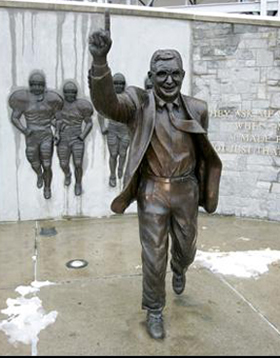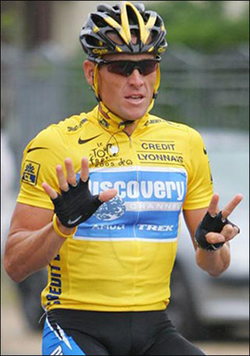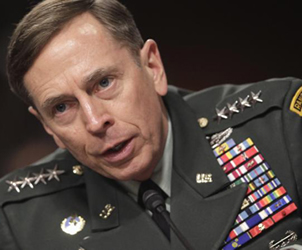

 “Such a great clatter the gods make,” goes an old saying, “when they fall.” Indeed, this might well be, were it not for the fact that this was also the year of the political crash of that un-heroic divinity of finance capital, Willard Romney, the year of the clattering heroes.
“Such a great clatter the gods make,” goes an old saying, “when they fall.” Indeed, this might well be, were it not for the fact that this was also the year of the political crash of that un-heroic divinity of finance capital, Willard Romney, the year of the clattering heroes.
Of the three, Joe Paterno was someone I admired; not because he was a goombah, but because I always liked Penn State’s working-class football team and Joe fit the and molded that image. He even got a statue at Penn State while he was alive; such a clatter statues make when they become an icon for enabling perversion. That he missed, or ignored information and cues to something even an octogenarian should have picked up on is a tragedy for an entire community and university. Armstrong, first a hero for surviving cancer (hey, what about my niece!) turns out to be a winner at all costs guy and a liar; screw him. And screw that phony-baloney Gen. Petraeus, too. Maybe Ike screwed Kate Summersby, but he never dressed up like a banana republic dictator. Paterno knew he screwed himself, and it probably, maybe mercifully, killed him.
That’s a lot of clattering so, since I have waxed this theme earlier in these pages I will auto-plagiarize a bit from here.
[13.3] There was a time when heroes were people of the exceptional character and behavior. Heroes emerge early in recorded history; Achilles and Odysseus, Moses and David, for example, but every society has, perhaps needs, heroes. There are mythic heroes to fill in the blanks: Spiderman, Mulan, Frodo, some are also referred to as “superheroes”. Heroes were people, real and imagined, who performed heroic deeds, willingly put themselves in danger or at risk, usually to defend a nation, a principle, or even a person.
But these days it seems that the title of hero is bestowed rather casually. Cops and firemen are categorically “heroes,” military people are categorically “heroes,” even POWs and those who died in the tragedy of 9-11 have been called “heroes.” Casualties in Iraq and Afghanistan are routinely called “heroes” by newscasters, politicians and their loved ones. For some, just being there defines them as “heroes”; but then there are some who clearly do not want to be there. For others a courageous act defines their heroism, but is being killed by a roadside bomb or a sniper, heroism?
[61.4] A Walmart television ad pumps their new “American Heroes” campaign. It’s always a good idea in America to hook your support of the troops to selling your crap made mostly in China. That’s because every American who dies or is wounded in our wars of choice is, as we are told, a hero. That makes all of us “heroes” when we go to the mall, flip out the plastic, and show those damn terrorists that we won’t be deterred from achieving the greatest private debt in the history of capitalism. Meanwhile our camouflaged preemptive protectors of the American Way will keep the infidel bastards at bay while sprinkling their lands with a gentle rain of soi-disant democracy. We are told that they are “fighting for our freedom,” no matter what contortion of logic, history, or common sense is necessary to factor that into our reality, so they are heroes.
The bellicose among us like the appellation of “hero.” It’s rather like when we decided in school that nobody “failed,” but was held back or put in some other, more “special needs” category. The euphemization of the “challenged” disabled is perhaps even closer to some of the “heroes” that war creates. So the soldier who returns with some limbs missing from, with PTSD, or in a metal box, is axiomatically a “hero,” whether he or she feels like one, or not. Indeed, in the wee hours when reality is a cruel companion, he or she might just feel like a victim. If so, they are doubly a victim when they are exploited with the term “hero” by the militarists and certified cowards like Bush and Cheney who march them out like Walmart ads, displaying Marines as crusading knights and others as an Army of One (leg, arm, or eye).
Jessica Lynch is [was] a hero. She drove into an ambush early in the Iraq war, was wounded, and probably had her life saved by the ministrations of an Iraqi doctor. Seems she never fired a shot, but the Pentagon turned her into an amalgam of Wonder Woman and Boadica. She probably sees her Iraqi doctor as a hero.
The Pentagon called Pat Tillman a hero, too. He was the pro football player who gave up his lucrative contract to be an Army Ranger in Afghanistan. He was killed by his own troops and the whole was a cover-up so he could he canonized a “hero” until the truth came out.
We need a new ad, one that says the “The Military does not give a rat’s ass for you and reserves the right to exploit you even after you are maimed or dead. And, the politician who trots you out as dressing for his war speech has probably just voted to cut your Veteran’s benefits as a sop to the anti-tax warriors. That’s how we treat our ‘heroes’.” Walmart is free to exploit the “heroes,” too; but Target might be a more apt purveyor of such distortion—because that’s what so many of our “heroes” were and are—targets.
None of this should be construed as a lack of appreciation for selfless acts of true heroism[49.4], the laying down or imperiling of one’s life for another. It does happen every day, in many ways, and in instances and over lifetimes, and mostly without notice, recognition or labeling as “heroism.” Recently, I was on the I-5 going through Camp Pendleton and there was a small roadside sign saying that this strip of freeway was the “Gunnery Sergeant John Basilone Highway.” Basilone, from Buffalo, NY, was a Medal of Honor recipient in WWII who was KIA in Iwo Jima, a brave Marine who wore the title of “hero” uneasily, returned to combat and perished. Fate would have been kinder had he survived, lived a long life, and that strip of highway would have remained nameless.
In the ancient sagas the hero often became divine, part god. But that pantheon was one of flawed gods themselves. Heroes are made, not born, and to be made one, by deeds of good PR, is a burden that presses heavily on the flaws that we all possess. Much becomes demanded of the hero—to remain heroic—and so their un-making can turn worship and adulation to scorn and disgrace. The lessons are all there— Ozymandias, Proverbs 16:18, the heel of Achilles—but we continue to raise our heroes and deifying them for fame and fortune . . . and bring them down with a great clatter.
____________________________________________________________
© 2012, James A. Clapp (UrbisMedia Ltd. Pub. 11.15.2012)
